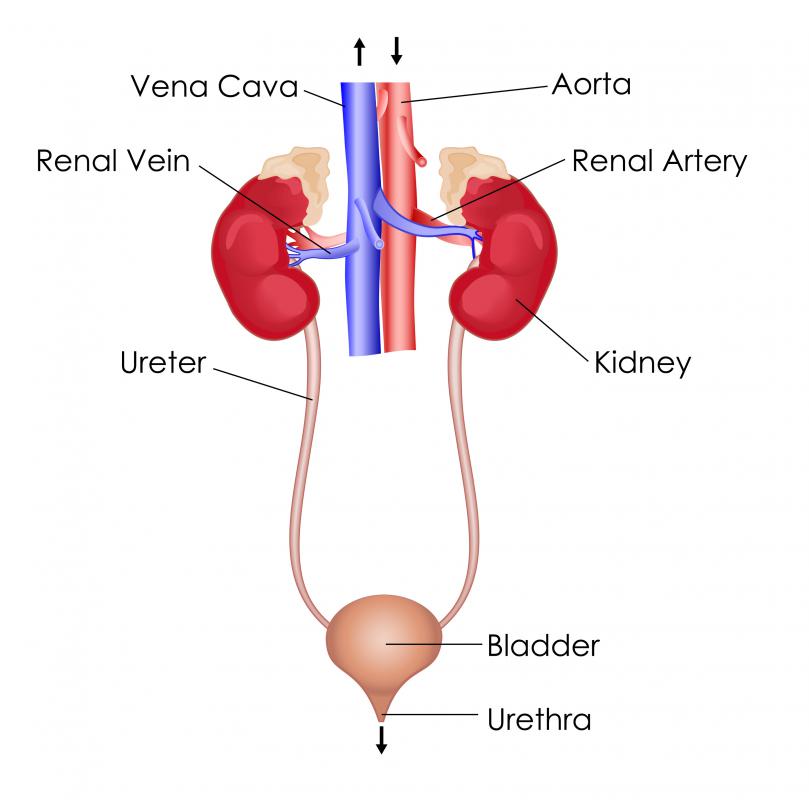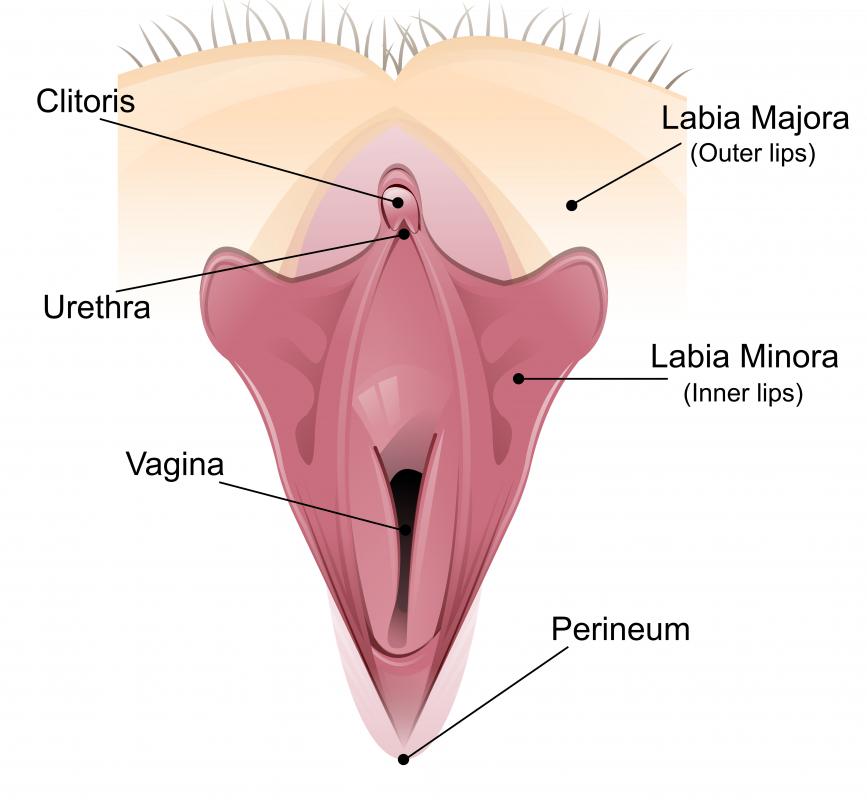At WiseGEEK, we're committed to delivering accurate, trustworthy information. Our expert-authored content is rigorously fact-checked and sourced from credible authorities. Discover how we uphold the highest standards in providing you with reliable knowledge.
What is Excretion?
Vertebrates can accumulate large amounts of waste in their tissues, organs, and blood. To keep harmful substances from staying in the body, waste elimination is achieved through a process known as excretion. During this process, waste matter is discharged through urine, sweat, and other means.
Excretion takes place with the help of four body systems. In the urinary system, the kidneys work to rid the body of water and toxins. They also eliminate electrolytes and nitrogen compounds. Ridding the body of carbon dioxide waste through respiration, the lungs form the respiratory lever of the excretory system.

Like the kidneys, the skin helps the body excrete nitrogen, water, and electrolyte wastes from the integumentary system. The sweat excreted from the skin contains wastes such as lactic acid and urea. Another purpose of the skin's excretion of sweat is to maintain body temperature and homeostasis. The digestive system also plays an important role in the excretory process. The intestine is responsible for eliminating bile pigmentation, heavy metal salts, and other digestive wastes.

Wastes exist in several forms. Dead cells and sweat are the most common wastes excreted by the skin. Both liquid and solid wastes exit the body through digestion in the form of urine and feces. The carbon dioxide and other gases excreted by the lungs are in gas form. Lungs also excrete mucus through mucociliary excretion.
The process of excretion is vital to the health and wellbeing of human beings and other creatures. The wastes found in the body are poisonous, and without proper detection can easily lead to death. The excretory system both finds these wastes as well as disposes of them, allowing the body to remain healthful and functional.

In plants, waste does not accumulate as heavily as it does in mammals and other vertebrates. The excretion method used by plants usually consists of the simple diffusion of waste gases into the organism's surroundings. Like humans, vertebrates excrete waste through the skin, lungs, and urethra with the help of the kidneys and lungs.
Removal processes of waste from the body can malfunction or cease if excretory organs fail. Medication and organ replacement can sometimes remedy such malfunctions. Lengthy manual treatments, such as dialysis, can sometimes fill in when an organ, such as the kidney, permanently fails. If not properly replaced or treated, excretory failure can lead to severe illness and death.

Many people refer to defecation as excretion. The use of the term in this way, however, is incorrect. Though feces itself contains waste, and its release is part of the excretion process, defecation itself is not considered waste removal. It instead refers primarily to the removal of indigestible food.
AS FEATURED ON:
AS FEATURED ON:



















Discussion Comments
Post your comments